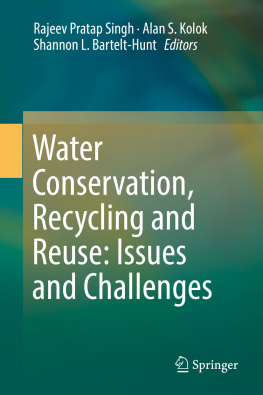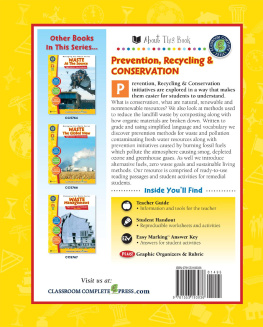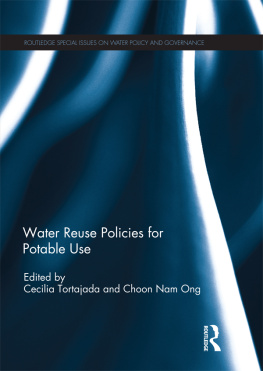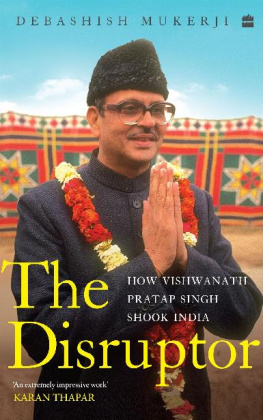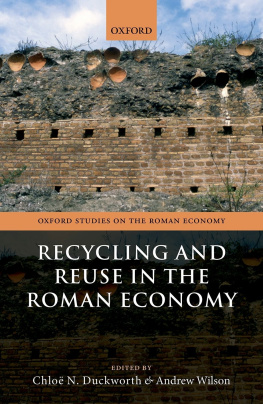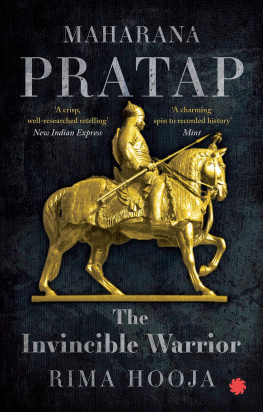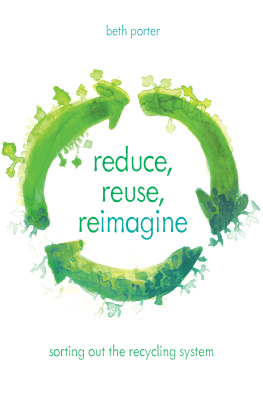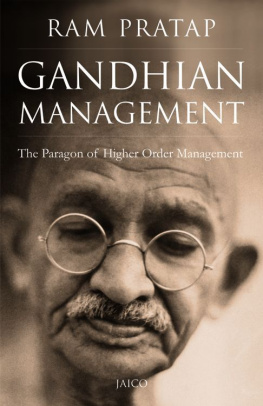Rajeev Pratap Singh - Water Conservation, Recycling and Reuse: Issues and Challenges
Here you can read online Rajeev Pratap Singh - Water Conservation, Recycling and Reuse: Issues and Challenges full text of the book (entire story) in english for free. Download pdf and epub, get meaning, cover and reviews about this ebook. year: 2019, publisher: Springer, genre: Science. Description of the work, (preface) as well as reviews are available. Best literature library LitArk.com created for fans of good reading and offers a wide selection of genres:
Romance novel
Science fiction
Adventure
Detective
Science
History
Home and family
Prose
Art
Politics
Computer
Non-fiction
Religion
Business
Children
Humor
Choose a favorite category and find really read worthwhile books. Enjoy immersion in the world of imagination, feel the emotions of the characters or learn something new for yourself, make an fascinating discovery.
- Book:Water Conservation, Recycling and Reuse: Issues and Challenges
- Author:
- Publisher:Springer
- Genre:
- Year:2019
- Rating:4 / 5
- Favourites:Add to favourites
- Your mark:
- 80
- 1
- 2
- 3
- 4
- 5
Water Conservation, Recycling and Reuse: Issues and Challenges: summary, description and annotation
We offer to read an annotation, description, summary or preface (depends on what the author of the book "Water Conservation, Recycling and Reuse: Issues and Challenges" wrote himself). If you haven't found the necessary information about the book — write in the comments, we will try to find it.
Water Conservation, Recycling and Reuse: Issues and Challenges — read online for free the complete book (whole text) full work
Below is the text of the book, divided by pages. System saving the place of the last page read, allows you to conveniently read the book "Water Conservation, Recycling and Reuse: Issues and Challenges" online for free, without having to search again every time where you left off. Put a bookmark, and you can go to the page where you finished reading at any time.
Font size:
Interval:
Bookmark:
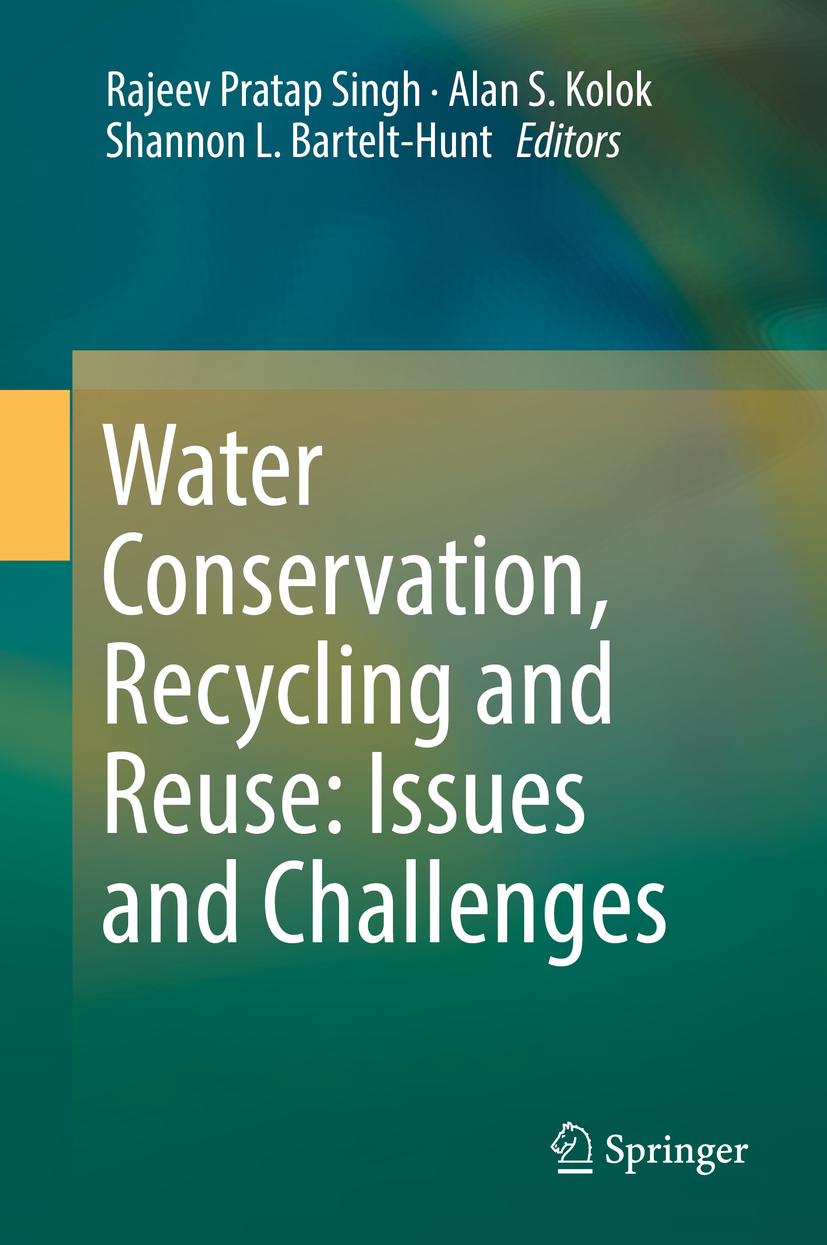

This Springer imprint is published by the registered company Springer Nature Singapore Pte Ltd.
The registered company address is: 152 Beach Road, #21-01/04 Gateway East, Singapore 189721, Singapore
This book is dedicated to our parents and other family members.
Water contamination is as old as civilization, with metals, industrial effluent, and human sewage taking the lead in stamping our historical footprint on the planets lakes, streams, and rivers. Over time, we have become a bit wiser as global citizens, successfully reducing our legacy of contamination from these traditional sources. Like peeling an onion, however, each layer of contamination we remove unmasks contaminants below.
These emergent contaminants share a common story line: they are present in municipal and industrial wastewater discharge. As we attempt to change the water resource paradigm from divided sectors of water supply and wastewater discharge to a One Water world, research into the removal, neutralization, and bioremediation of traditional and emergent contaminants is critical to wastewater reuse as part of the worlds water supply.
As stewards of our planets finite freshwater resources, it is our responsibility to see that our water is safe and clean to use now and for future generations. All are related.
Increasing global population combined with diminishing freshwater supplies exert growing pressures on available water resources. Significant non-potable uses of water include crop irrigation and energy production. As agricultural production and energy production intensify to meet the growing global needs, the pressures on freshwater supplies are accelerated. An alternative to increasing withdrawals of freshwater supplies to meet future agricultural and energy demands is the use of nonconventional water sources including wastewater reuse. Effective long-term use of alternative waters requires an understanding of temporal, spatial, and climate-induced trends in their quantity and quality as well as any regulatory or economic barriers to their adoption. Concerns associated with the use of alternative water sources are based on questions about the safety and quality of food crops growing using recycled wastewater, the safety of agricultural workers, and the potential for contaminant accumulation and impacts on soil productivity. Additionally, regulations controlling the use of alternative water sources vary significantly from across the globe. These economic, regulatory, and technical concerns must be addressed with research efforts to identify sustainable strategies that link collection, storage, and treatment of recycled or reused water. This book explores various issues related to water recycling and reuse in the context of agricultural production and energy applications.
Chapter entitled Occurrence and Health Impacts of Emerging Contaminants in Municipal Wastewater Reuse focuses on the occurrence of pharmaceuticals and personal care products (PPCPs) and perfluorinated compounds (PFCs) in wastewater and describes treatment technologies for removal of these compounds prior to wastewater reuse.
Chapter entitled Promises and Challenges of Growing Microalgae in Wastewater describes the potential for growing algae as a feedstock for biofuel production using wastewater, which can provide a valuable source of nutrients. The microalgae grown in wastewater can also serve as a remediation strategy for water-borne pollutants.
Chapter is entitled Risk of Metal Contamination in Agriculture Crops by Reuse of Wastewater: An Ecological and Human Health Risk Perspective. This chapter focuses on the potential for accumulation of metals in the topsoil of plants and subsequent uptake into food crops. This chapter also explores human and ecological health risks from this wastewater reuse paradigm.
Chapter entitled Biological Wastewater Treatment for Prevention of River Water Pollution and Reuse: Perspective and Challenges outlines the potential for wastewater remediation strategies that involve oxidation ponds, plants, and constructed wetlands, which can potentially reduce the costs and infrastructure associated with wastewater treatment.
Chapter entitled Climate Change and Sustainable Management of the River System with Special Reference to the Brahmaputra River describes the results of a sampling campaign along the Brahmaputra River and the influence of climate on mineral weathering and metal release within the river system.
Chapter entitled Effects of Climate Change on Reuse of Wastewater for Aquaculture Practices evaluates the impact of climate change, including higher water temperatures and more extreme precipitation events on wastewater quality and the potential for reuse of wastewater through aquaculture.
Chapter entitled Bioprocesses for Wastewater Reuse: Closed Loop System for Energy Options describes various biologic processes for wastewater treatment linked with generation of biomass, which can be used to produce bioenergy and/or other biobased products.
Chapter entitled Subsurface Processes Controlling Reuse Potential of Treated Wastewater Under Climate Change Conditions evaluates biogeochemical processes controlling solute fate in the subsurface as well as a case study of groundwater contamination from land application of wastewater.
Font size:
Interval:
Bookmark:
Similar books «Water Conservation, Recycling and Reuse: Issues and Challenges»
Look at similar books to Water Conservation, Recycling and Reuse: Issues and Challenges. We have selected literature similar in name and meaning in the hope of providing readers with more options to find new, interesting, not yet read works.
Discussion, reviews of the book Water Conservation, Recycling and Reuse: Issues and Challenges and just readers' own opinions. Leave your comments, write what you think about the work, its meaning or the main characters. Specify what exactly you liked and what you didn't like, and why you think so.

